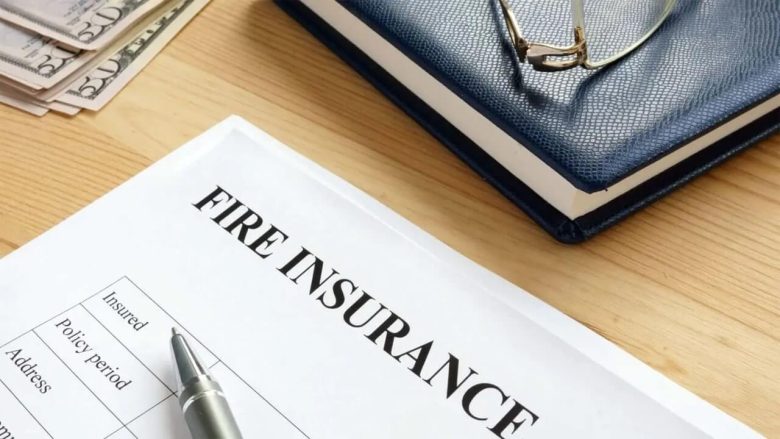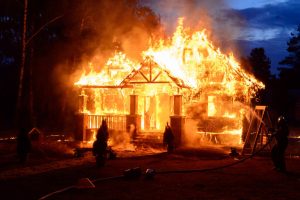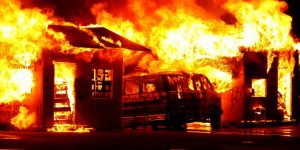Fire insurance is an invaluable safety net that can mitigate against financial setbacks, making it essential for homeowners, landlords and business owners alike.
Lenders usually mandate homeowners purchase a valid homeowner’s policy with fire coverage, though it makes good sense for anyone living in their home to purchase such coverage whether required by their lender or not.
Coverage for Damage
Fire damage is an ever-present risk for home and business owners alike. Fire can wreak havoc on property and incur massive financial loss, with serious repercussions for all parties involved. But you can protect yourself with an adequate fire insurance policy.
Fire insurance policies cover not only the structure but also its contents – such as electronics, furniture and stock or inventory if applicable – which include electronics, furniture and even stock or inventory if applicable. A typical fire policy also offers loss of use coverage to cover expenses such as lodging in hotels or eating out while your home undergoes renovation after being affected by fire.
If the fire damage cannot be fully restored, your insurance company may provide compensation based on actual cash value (ACV) or replacement cost minus depreciation – this way the full burden for repairs or reconstruction won’t fall on you alone and allows you to recover without spending down your savings account.
Fire insurance is essential for businesses that rely on physical assets to operate, like manufacturers, retailers, or financial institutions. Real estate investors and landlords who wish to safeguard their investments against the risk of fire may find fire insurance beneficial as well as protecting educational buildings essential to the community’s wellbeing.
Coverage for Contents
Fire insurance policies help victims relieve themselves of the responsibility for rebuilding or replacing damaged property from falling solely onto them, relieving financial strain from savings while making filing claims easy and stress-free.
Fire damage is covered under most homeowners and business owners insurance policies, with standard policies covering damages to both the structure of your home or other structures on your property and personal belongings within it. Some policies also provide hotel and food costs if you must relocate during repairs; many insurers also offer “loss of use” coverage that pays accommodations up to one year post disaster.
Most policies also cover disasters such as lightning strikes, explosions and burst water tanks. You can tailor your policy to meet your individual needs by adding extra protection for specific items if required.
Business owners should protect their investments with a comprehensive commercial property insurance policy to safeguard business operations in case of disaster, as well as reduce any legal liabilities that might arise from such an incident and cover any repairs or replacements required due to third-party damage. Likewise, landlords should obtain fire insurance to keep tenants safe from potential harm and ensure continuity.
Coverage for Liability
Fire damage legal liability serves as an invaluable financial protection for property owners, offering peace of mind against the debilitating financial repercussions associated with unexpected fire incidents. To maximize its benefits and ensure maximum coverage from this policy, it’s vital that property owners become familiar with its limits and exclusions; understanding these elements helps avoid unexpected expenses when filing insurance claims.
As property protection, fire legal liability policies typically cover the costs associated with repairing or replacing your dwelling and its contents after an accident, as well as loss-of-use coverage that reimburses expenses such as temporary lodging and meals if your home becomes uninhabitable due to fire. Furthermore, many fire legal liability policies also cover restoration services and any personal belongings stolen or destroyed during a blaze.
Your policy’s wording may also cover other structures on your property, including detached garages, barns and tool sheds. Other personal property coverage typically provides repairs or replacement costs of electronics and furniture up to the policy limit less any deductible payments.
Coverage for Additional Living Expenses
Fire is one of the most destructive forces in nature, yet it isn’t the only cause of property damage. Explosions, landslides and burst pipes can also have serious repercussions for commercial and residential property owners alike.
Insurance provides an effective means of mitigating risks, helping ensure that your investments remain safe. But before filing a claim against an insurer, it’s crucial that you fully comprehend all the details of your policy before seeking an indemnity payout from them.
Homeowners insurance policies usually provide protection for damages caused by fire. The insurer reimburses the homeowner either on an actual cash value (ACV) basis or replacement cost basis depending on their policy terms.
Business owners should strongly consider purchasing separate fire insurance policies for their companies. Fires can wreak havoc with inventory and equipment essential to running an organization smoothly, leaving significant financial losses unrecovered – without proper insurance, this could force liquidation of assets or even the closure of operations altogether.
Dwelling fire insurance is a type of fire protection designed to safeguard not only contents, but also the structure itself from certain perils. Such policies can help safeguard an unoccupied property such as a vacation home or rental building that has been vacant for some time; taking out such policies is often taken out to cover vacation homes or rental buildings that have been abandoned for an extended period. Documentation can be essential in these instances so it would be prudent to record video footage and keep receipts.




